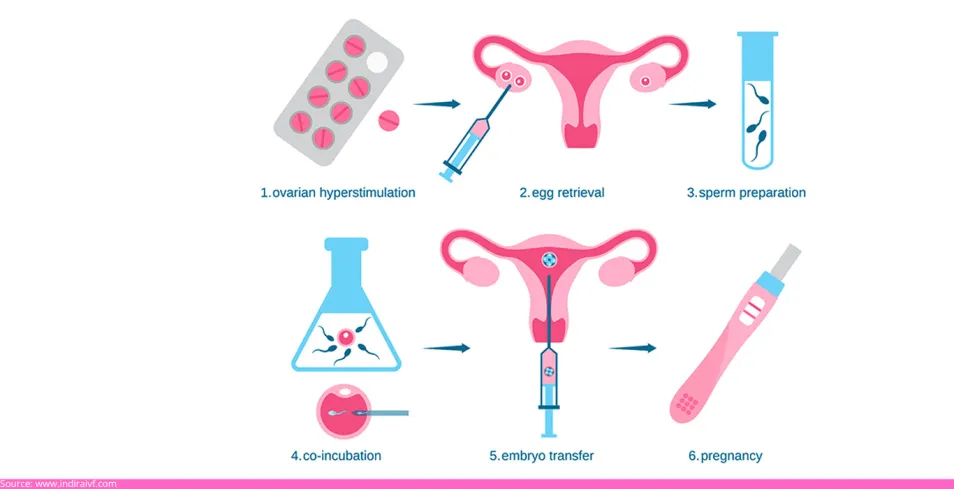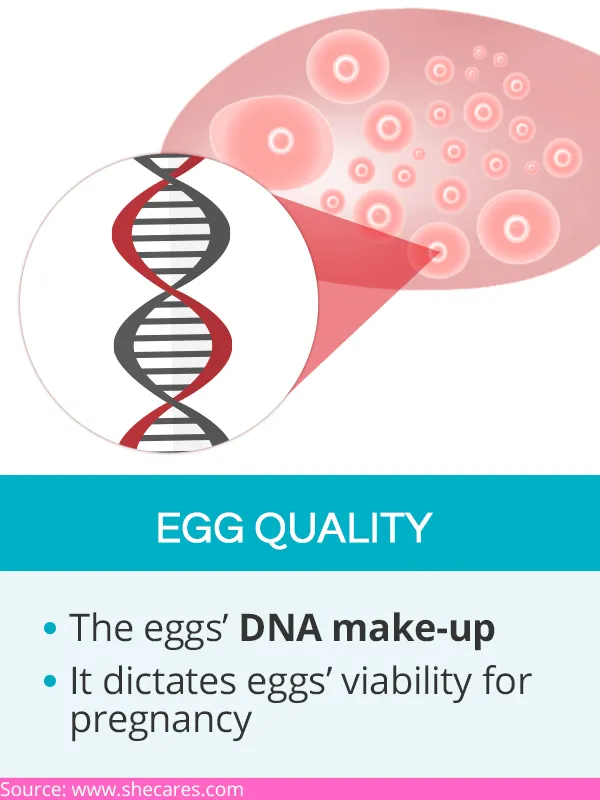The egg quality is a significant contributor to infertility in women. The availability, quality, and quantity of eggs impact the quality of the embryos and the viability of the pregnancy. Reduced ovarian reserve causes poor egg quality, a typical problem among women over 35.
Dr. Nisarg Patel, one of the founders of Nisha IVF Centre, says that although it is a significant issue, it is never taken into account until the woman is having difficulty getting pregnant and starts considering in vitro fertilization (IVF).
In vitro fertilization (IVF) is used to treat various fertility issues, such as unexplained infertility, ovulation disorders, and blocked fallopian tubes. It can also be used to preserve fertility in cancer patients who are about to undergo treatment that may damage their eggs or sperm.
When you are trying to get pregnant through IVF, every little detail matters. You want to give yourself the best possible chance of success, including providing the healthiest eggs possible.
Why is egg quality important in IVF?

IVF is a process by which an egg is fertilized by sperm outside the body in a laboratory. The IVF process includes using a needle to retrieve eggs from the ovary, fertilizing them in a dish with retrieved sperm, and then implanting the embryo into the uterus (womb).
Egg quality is essential for IVF because it is a significant determinant of embryo quality, which is a major determinant of pregnancy and live birth rates.
Dr. Nisarg Patel, often regarded as the best IVF doctor in Ahmedabad, explains that eggs of poor quality are more likely to produce poor-quality embryos. Poor quality embryos are less likely to implant in the uterus or to survive if they do implant.
How is egg quality measured?

The quality of eggs cannot be tested.
Anti-Müllerian hormone levels and other fertility tests can tell you how many eggs you still have, which can help you estimate how many eggs you can extract during an egg-freezing or IVF cycle.
One way to analyze egg quality is to look at the number of eggs fertilized after insemination. This number can give you an idea about the egg’s ability to be fertilized and develop into an embryo.
The only way to determine whether an egg has normal chromosomes is to try to fertilize it and, if fertilization is successful, to conduct a pre-implantation genetic test.
If you have tried repeatedly to get pregnant and are seeking other options, this blog will provide tips on improving your egg’s quality for IVF.
Tips to improve your egg quality
The quality of a woman’s eggs is essential whether going for an IVF procedure or trying to conceive conventionally. There are a few things you can do to improve your egg quality:
Eat a nutritious diet

Egg quality is directly related to the overall health of the body. Eating a diet rich in antioxidants, healthy fats, and vitamins can improve egg quality.
Boost blood flow
The ovaries must receive oxygenated blood to produce healthy eggs. It is crucial to maintain hydration to boost the flow of oxygenated blood to your reproductive organs. Drink 6 – 8 glasses of water or other healthy fluids per day.
Exercise regularly
Exercise is crucial because it also improves blood flow throughout your body. Moderate exercise has been shown to enhance the quality of eggs.
However, the accomplished IVF specialist, Dr. Nisarg Patel, cautions that too much exercise can decrease IVF success rates, so it is important to find a balance.
Manage stress levels

Stress can have a negative impact on your egg quality. If you are feeling overwhelmed, try some relaxation techniques such as yoga or meditation, etc. Massage therapy or yoga also helps in improving your blood flow.
Maintain your weight
Obesity is one of the frequent reasons for infertility and a decline in the quality of eggs. Being overweight might cause hormonal imbalances and interfere with your ovulation. Keep your BMI between the suggested ranges of 18.5 – 24.9, which is the ideal weight for a healthy pregnancy.
Supplements
Some specific supplements have been shown to improve egg quality, including Co-enzyme Q10, melatonin, and omega-3 fatty acids.
Do not smoke
Smoking has a negative impact on egg quality. If you smoke, quitting is the best thing you can do for your fertility.
Going through an IVF cycle involves not just your time and money but also a lot of emotional anxiety and anticipation.
Improve your chances of having a healthy and successful pregnancy by working with the top-notch IVF specialist Dr. Nisarg Patel at Nisha IVF Centre, one of the best IVF hospitals in Ahmedabad.
Conclusion
 Eggs are the foundation of life.
Eggs are the foundation of life.
Every woman produces some aberrant eggs, and this percentage rises with age. Poor-quality eggs seldom or never fertilize. A smaller percentage that fertilize can be more likely to result in miscarriages or genetic abnormalities for the child. This explains why getting pregnant can take an older woman far more menstrual cycles and why the success rate of IVF declines as a woman gets older.
Remember, you can give yourself the best possible chance for a successful IVF cycle by taking steps to improve your overall health.
Making even small changes in your lifestyle can significantly impact your egg quality, advises the highly skilled fertility specialist, Dr. Nisarg Patel.
With 13 years of overall experience in his field, Dr. Nisarg Patel is one of the preferred IVF doctors for people seeking IVF Treatment in Ahmedabad, Gujarat.


